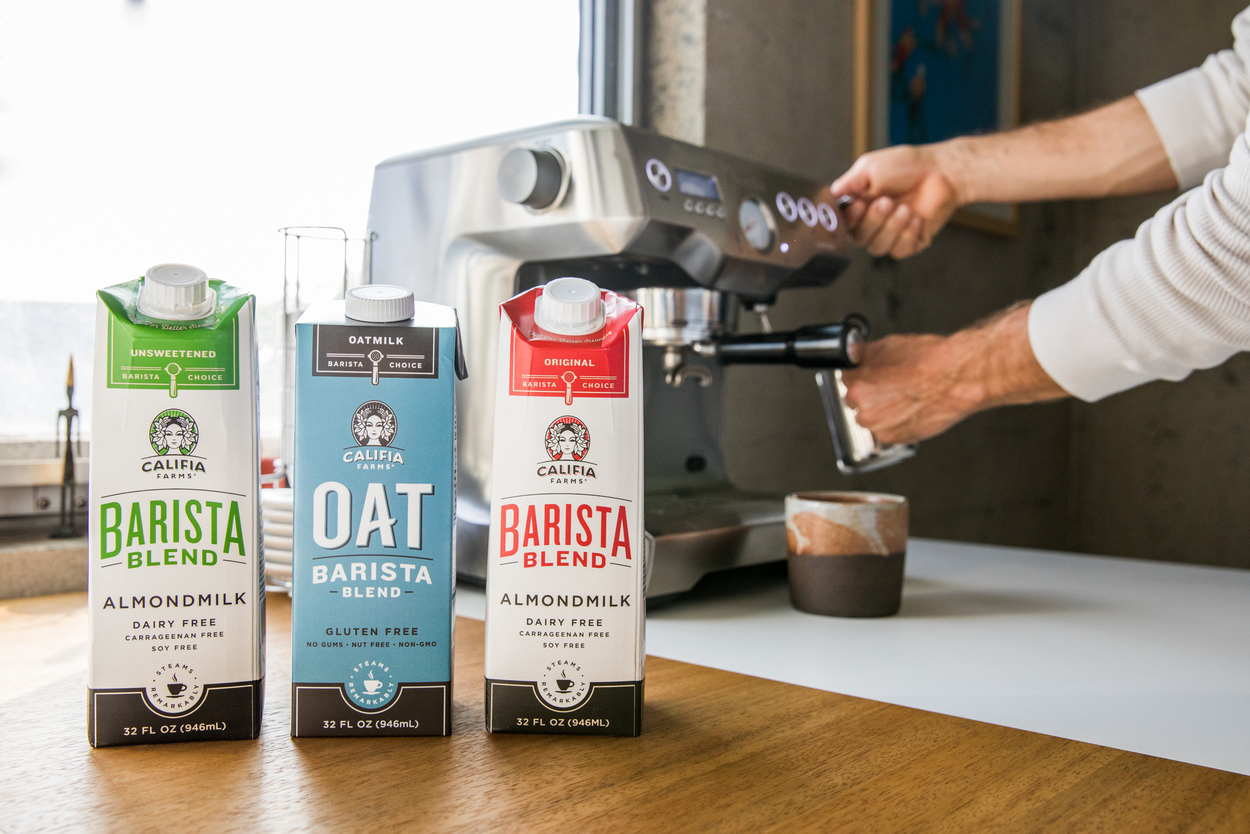
China’s young, health-conscious consumers are going nuts for Califia Farms’ oat and almond-based products on Alibaba’s Tmall Global e-commerce platform.
Califia Farms, a leading plant-based food and beverage company with headquarters in Los Angeles, made its first foray into China last October through Alibaba’s flagship cross-border marketplace. Working through a long-term partner based in Hong Kong, the brand is supplying container loads of products to shoppers on Tmall Global each month.
“We founded Califia Farms with the goal of serving consumers around the world and the mission of building a healthier global food environment,” said Greg Steltenpohl, founder of Califia Farms. “The China market presents a huge opportunity for us, and we know Alibaba is the right partner for the market. We have been pleasantly surprised by Chinese shoppers’ instant adoption and a strong affinity for our brand.”
Fastest-Growing Plant-Based Market
The warm response to Califia Farms’ products has a lot to do with the growing popularity of plant-based milk in China. According to statistics from Alibaba’s market-research division Tmall Innovation Center, in the fiscal year ending in March 2020, the category saw an 800% growth year-over-year in China. Whereas other categories such as juices, instant coffees and tea-based drinks in the beverage sector grew by an average of 60%.
Steltenpohl said China pioneered soy-based products and walnut milk long before it became a trend in the U.S. That a large portion of adults – as high as 70 to 100 percent in East Asian communities – are lactose-intolerant also explains the quick adoption and a greater need for alternatives to dairy-based milk in the region.
“Asia is the biggest market and home for plant-based consumption. In a way, this is a journey back home,” said Steltenpohl. “But I do think there is a premiumization that Califia Farms has brought that adds something new to the base established in China a long time ago.”
Catering to Local Tastes
Califia Farms’ most popular drink is their barista blend of oat and almond milk – an extra creamy texture perfect for pulling lattes.
Surprisingly, its unsweetened version with zero sugar has become a top seller in China.
The company leveraged Tmall Global to understand why. Monitoring community reactions and insights on the platform, the company quickly recognized local dietary differences and a much lower sugar consumption among Chinese customers than their western counterparts.
“We test, learn, adapt and acknowledge the uniqueness of the Chinese market. And keeping in mind local tastes and flavors is a big part of the business,” the founder said.
Califia Farms will continue to tap Alibaba’s extensive market insights to fast-track its product cycles and new formula adjustments.
Additionally, the company is trying to capture China’s booming coffee-drinking culture with diversified product lines. Califia Farms will take part in Alibaba’s 11.11 Global Shopping Festival this year for the first time, leveraging the world’s biggest e-commerce event to offer plant-based creamers and cold-brew blends to thirsty consumers in China.
Premium Products as Lifestyle Choices
From sourcing to packaging, Califia Farms aims to bring better and more nourishing products to market. The company selects ingredients through various direct-sourcing partnerships. For example, over 80% of the almonds used in its beverages are grown locally, very close to its bottling facilities. The brand and its mission struck a chord with health-conscious Millennials in China.
To target its key demographic of consumers 25-35 years old and also raise awareness about the benefits of plant-based products, the company tapped into Alibaba’s livestreaming platform. Recently, with Chinese staying home during the coronavirus outbreak, the company created short videos of recipes on Tmall Global to encourage creative and healthy ways of consuming the product. For example, it offered up blended barista formulas to make bubble tea or fruit tea.
“I personally care more about the lifetime value of our consumer relationships in China, rather than the transitory value of how quickly we can establish sales growth. Because, contrary to what many might believe, lasting brands are a real possibility in China,” said Steltenpohl.




